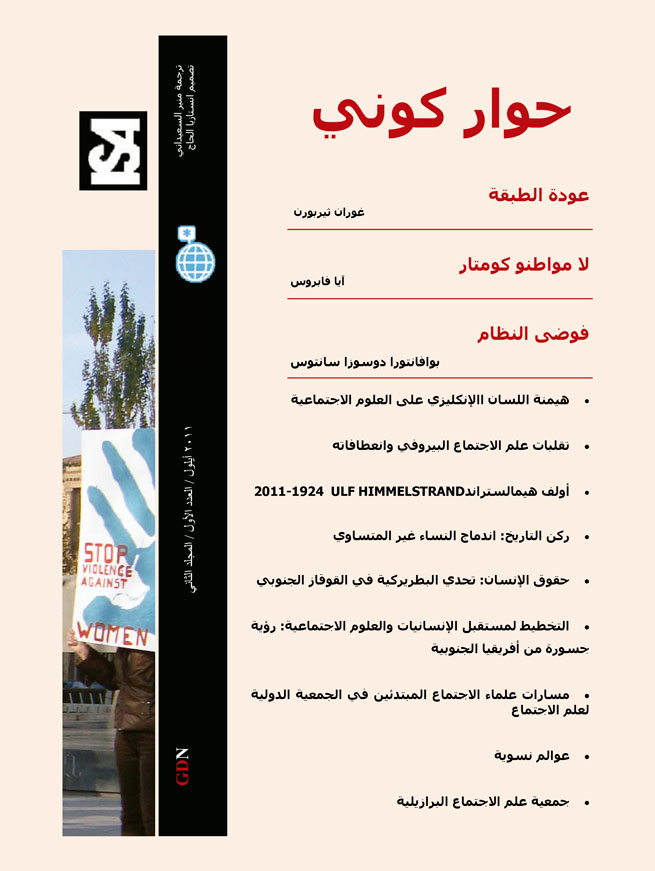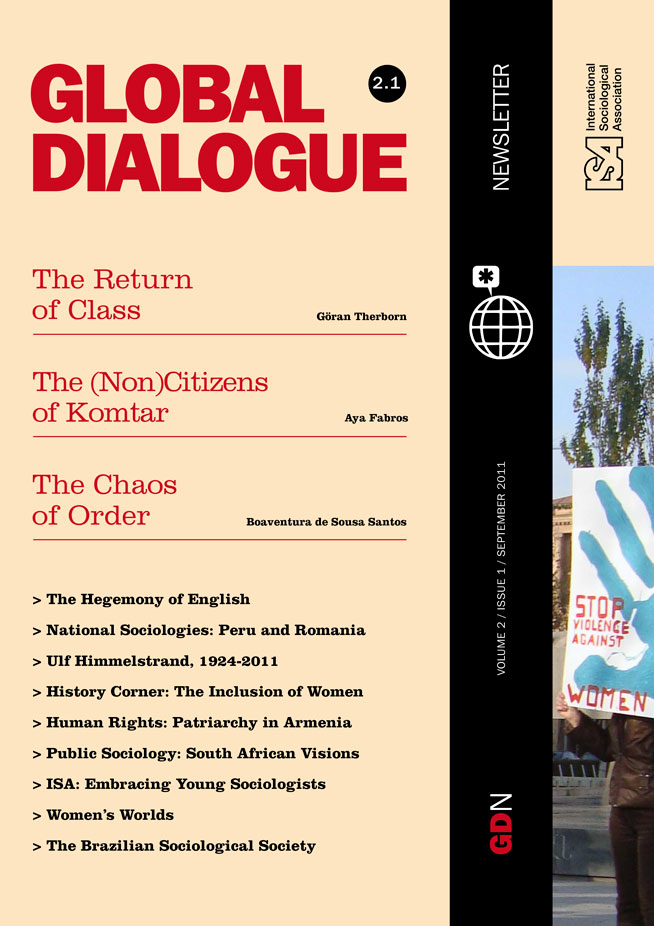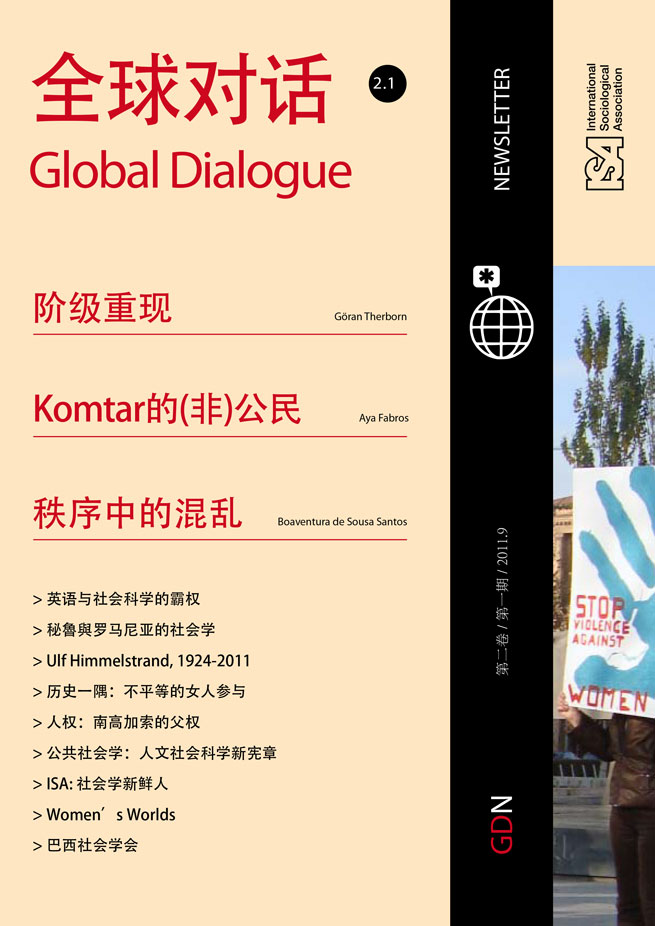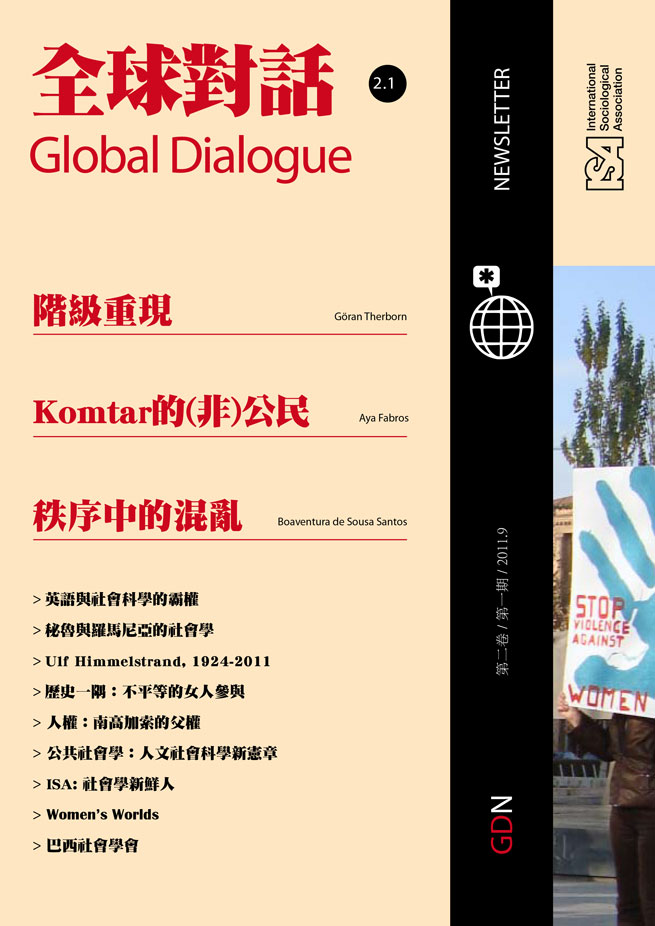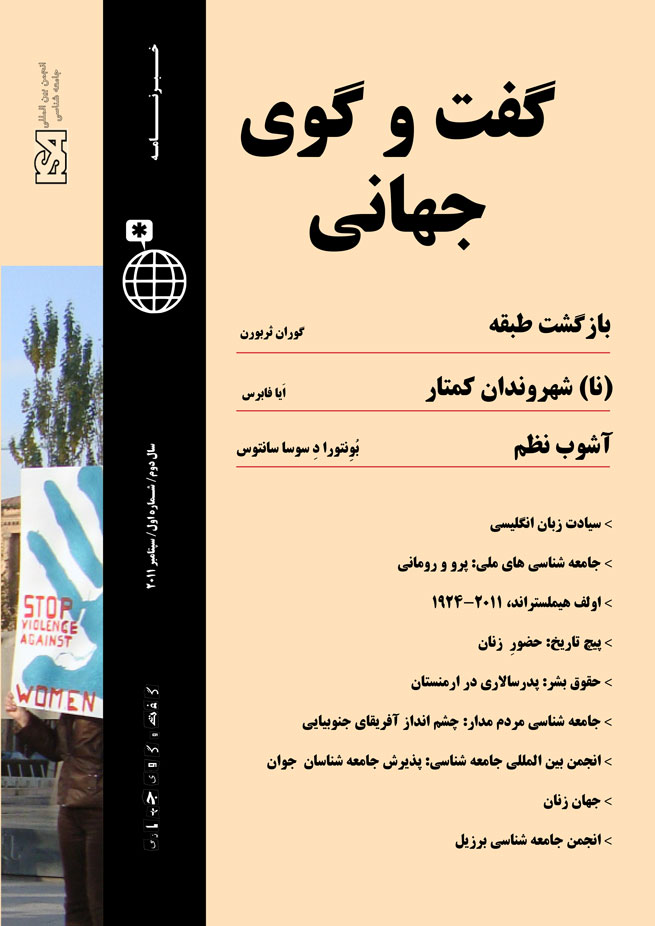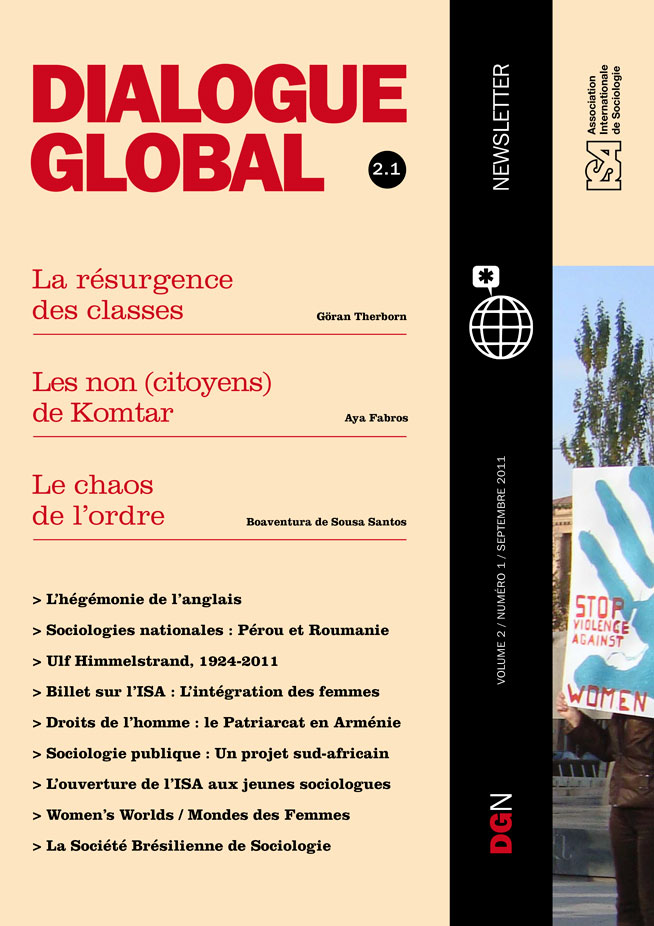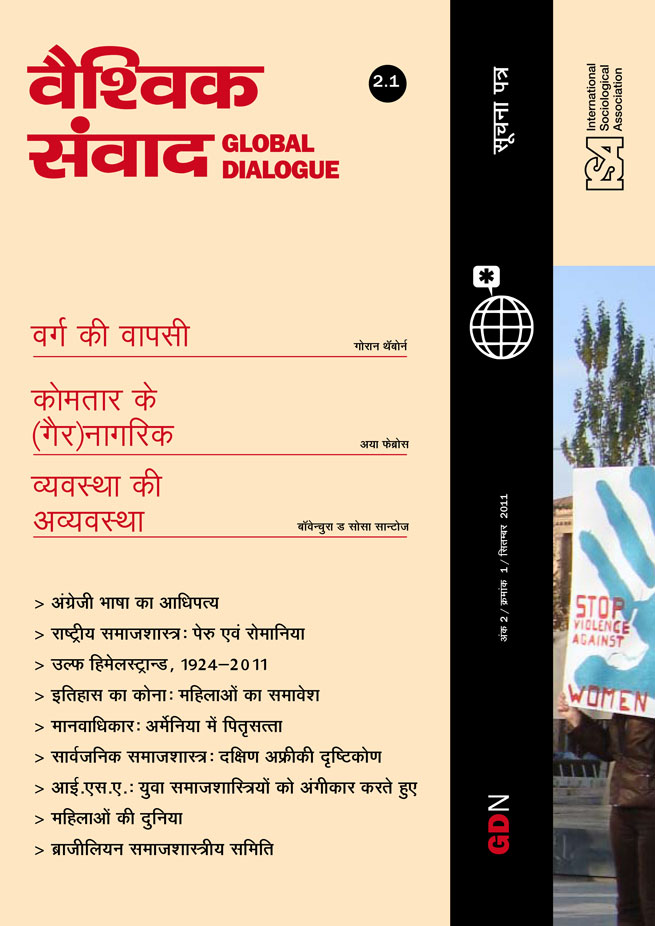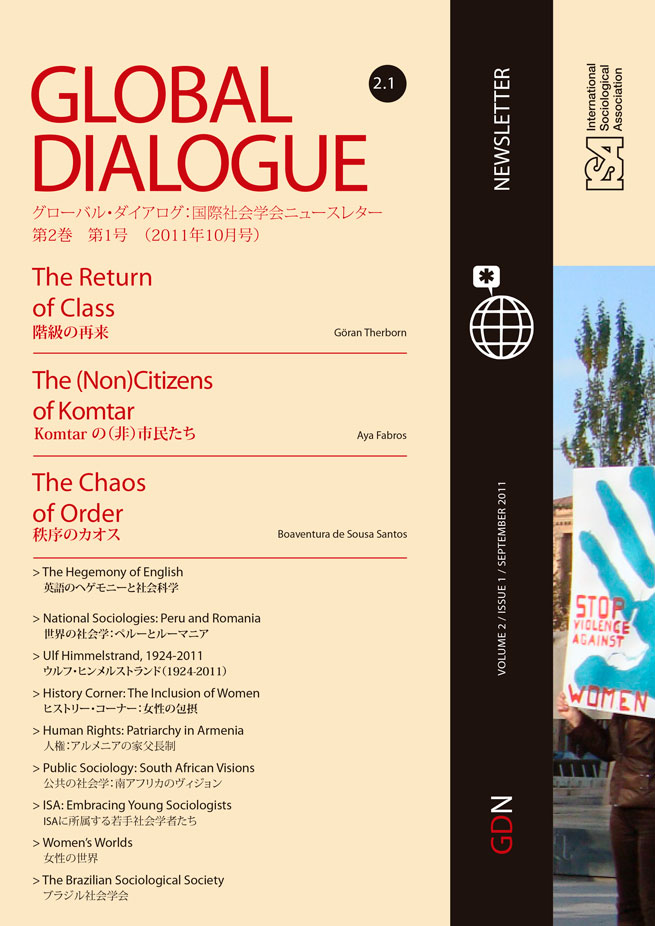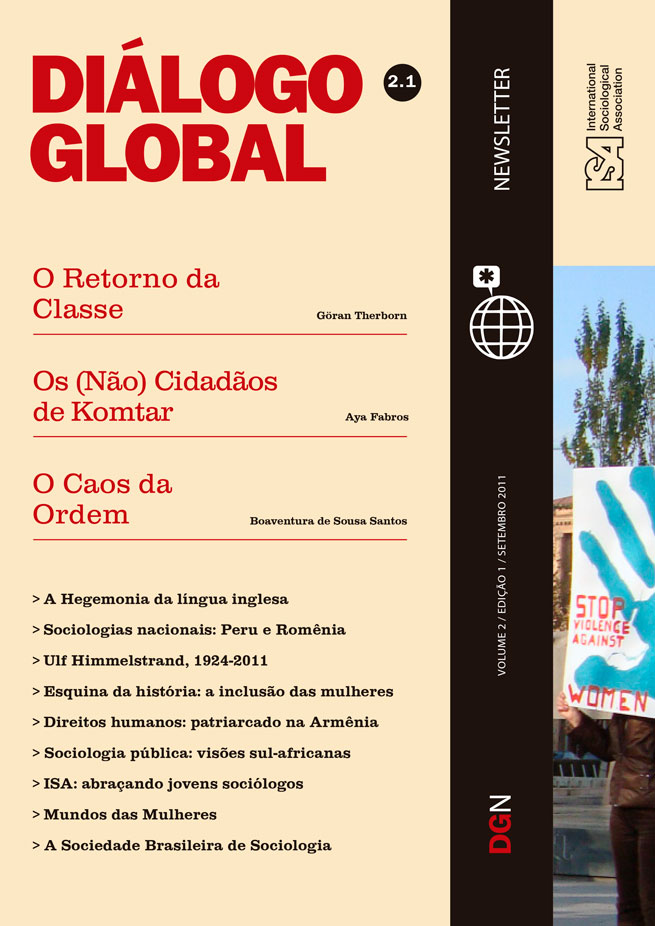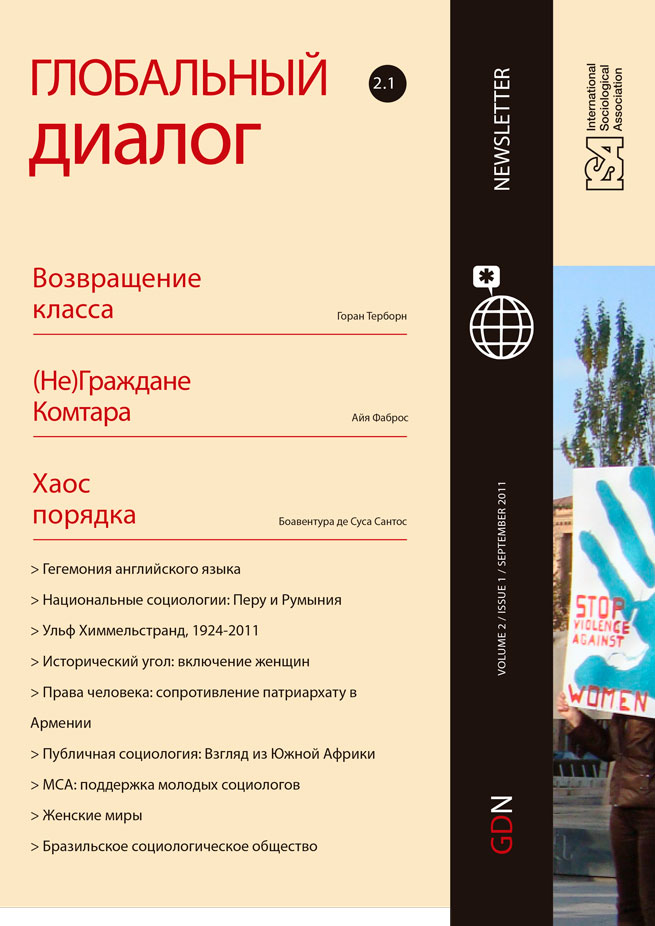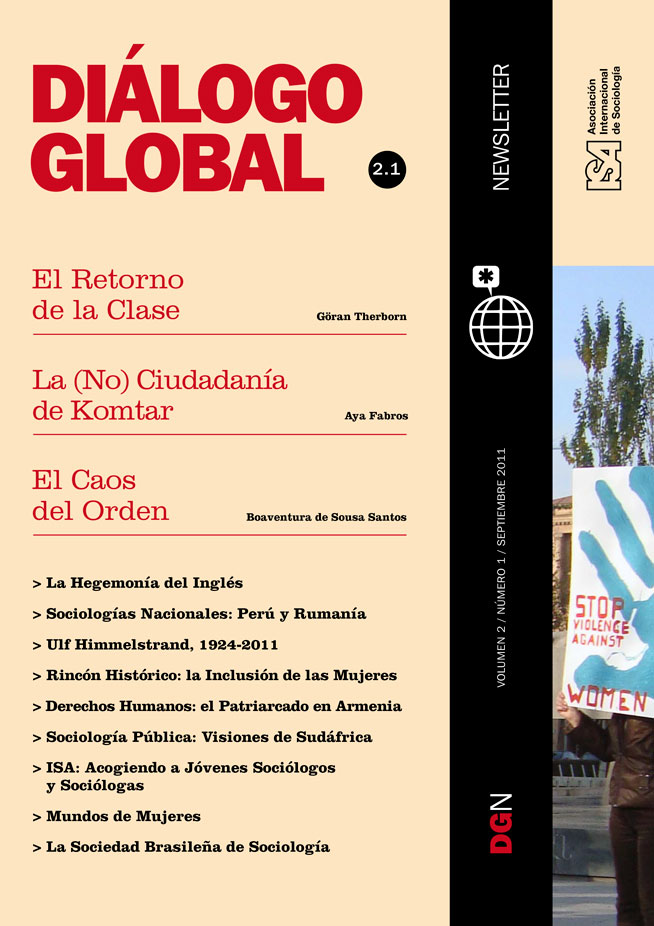Read more about National Sociologies
Romanian Sociology: Rapidly Making Up for its Rocky Past
by Marian Preda and Liviu Chelcea
September 30, 2011
Currently, Peruvian sociology exists as a scientific discipline and as a profession. Nonetheless, it is not well institutionalized, as well as lacking recognition and influence. The development of sociology in Peru has gone through four stages: concern with social issues, sociology as a professional occupation, the deterioration of sociology in NGOs, and the return of a critical sociology.
Social Concerns
The concern with social issues has motivated intellectual reflection in Peru since the turn of the 20th century. Nevertheless, at that point, it largely took the form of great diagnostic essays about the crossroads facing the country and efforts to delineate, in broad strokes, the direction that Peru’s evolution, development, and transformation should take. Thinkers in this early period began to ask big questions about Peru for the first time. They included people associated with the conservative right, who expressed the positions of the dominant oligarchy, as well as others from the reformist and revolutionary left, which had begun to emerge and produce its first, great intellectuals. On the right, important names included those of José de la Riva Agüero, Francisco García Calderón and Víctor Andrés Belaúnde; on the left, those of Manuel González Prada, Víctor Raúl Haya de la Torre and José Carlos Mariátegui.
In this first period, specifically in 1896, sociology also appeared as a university course in the Department of Letters at the University of San Marcos. As a course, it was relatively marginal to the analysis of national issues. Rather, the course followed the postulates of Comte and Spencer to develop a theoretical explanation of social development. Curiously, in this first stage, there was little contact between the analysis of social concerns and sociology, in spite of the fact that, in the following decades, the former would be central to the development of the latter.
The Development of Sociology as a Professional Occupation
Only recently, in 1961, did sociology become a professional occupation in Peru, with the founding of the Department of Sociology at the University of San Marcos. A few years later, in 1964, something similar happened at the Pontific Catholic University, which established a School of Social Sciences, including a major in sociology. Foreign support and influence proved important in both: the University of San Marcos received funding from UNESCO, and the Catholic University from the Dutch government. In the beginning, structural functionalism imported from the United States strongly influenced both teaching and research in sociology. The technocratic turn, with the idea of ‘solving specific social problems’, would be very important in this first moment of academic sociology.
Nevertheless, this technocratic sociology shifted almost immediately to a sociology influenced by the arrival of Marxism through the student movement, and the momentum of leftist thought in Latin America, which would drive critical thinking. That time also marked the appearance of a nationalist, leftist government, the result of a military coup, which would, despite being a dictatorship, radically expand the number of jobs available to sociologists. This was 1968, a meaningful year in Peru as it was in the rest of the world. This shift would give sociology the revolutionary identity it maintained during the following decades, at least until the neoliberal regression of the 1990s. The Marxist influence pushed the prior technocratic orientation aside, putting sociology at the service of what, at that moment, was considered the revolutionary transformation of society. During the 1970s, the new orientation and an improved labor market brought sociology to its peak in Peru. At that time, not only were new sociology majors established in various universities, but sociologists were also employed in various state agencies, pushing forward the military government’s reforms. There were important developments in sociological research, especially in the field of politics and in the characterization of the capitalist development that was occurring in the country. The profession acquired significant status as a new career, expressing the spirit of an epoch of change.
The appeal of Marxism lay not only in its global perspectives but also because it returned to sociology’s progressive precursors of the first decades of the 20th century, especially the figure of José Carlos Mariátegui whose works appeared in new editions. An important debate arose over his legacy, with significant interventions from the Peruvian sociologist César Germaná and the Argentine José Aricó, not himself a professional sociologist but a key figure nonetheless. Still, as a line of critical thinking, Marxist influence remained limited although there were advances made, particularly in the journal Sociedad y Política (Society and Politics), directed by Aníbal Quijano, with its memorable analysis of the military government in the decade of the 1970s. The journal El Zorro de Abajo (Zorro from Below), directed by anthropologist Carlos Iván Degregori but run by an editorial committee mostly made up of sociologists, was also important during the 1980s. Sinesio López, a member of its editorial group, was particularly influential. Using Antonio Gramsci’s framework, his writing offered an interesting lens to understand the development of the state and the characteristics of nascent social movements. Julio Cotler provided a rare example of a blend of Marxist and Weberian thinking that focused on Nation State building and the lack of legitimacy of the oligarchical power in the country. His major book Clases, Estado y Nación en el Perú has gone through several editions since the original publication in 1978.
The other side of Marxism, which would prove to be the most influential in sociology and in Peruvian social sciences as a whole, was Marxism-Leninism. This dogmatic Marxism came hand in hand with the rising influence of the Maoist segment of the communist movement, very powerful in public universities in the decades of the 1970s and 1980s, especially where sociology was offered. Dogmatic Marxism sought to reconstruct social science curricula requiring all professors be political addicts who limited their bibliographies to the manuals of the former USSR Academy of Science and the selected works of Marx, Lenin, and Mao. The intellectual domination of this dogmatic Marxism coincided with years of political violence in Peru, when the insurgency of the Maoist group Sendero Luminoso cost the country twelve years of internal war and approximately 70,000 deaths. This conversion practically spelled the death of sociology in the country, drastically reducing its influence as a form of professional knowledge and its presence in public institutions, and marginalizing it intellectually. Several public and private universities eliminated their majors in sociology. It persisted with some quality only in the two original centers: the University of San Marcos and the Catholic University. With the collapse of the discipline, needless to say, individual, professional sociologists suffered degradation as well as personal challenges of survival.
The Deterioration of Sociology in NGOs
During the decades of the 1980s and 1990s, non-governmental organizations (NGOs) became an important place of refuge for professional sociology. NGOs literally served as a refuge, because these were the decades of internal warfare (1980s), first, and then, after that, of the neoliberal dictatorship of Alberto Fujimori (1990s). In that epoch sociology’s identification with the left, and even worse with the revolution, worked against the discipline. The demand for sociologists diminished drastically, most of all in the public sector but also, as was mentioned above, because various universities that used to offer sociology courses closed their doors to the discipline. NGOs were formed, in part, by sociologists who put together small development projects and obtained financial support from international sympathizers. This type of work had the virtue of helping many sociologists develop professionally in a line of work that was closely linked to social needs. Nevertheless, sociology was deprived of great minds, limiting possibilities for its intellectual development. This became especially true as funding increasingly came from multilateral agencies like the World Bank, imposing the influence of the so-called Washington Consensus. The hegemony of this form of thinking led to the ‘subalternization’ of critical social categories. In perhaps the best example of this, the category of poverty almost completely replaced the category of inequality.
On a positive note, in the decade of the 1990s, the College of Peruvian Sociologists, a professional association of Peruvian sociologists, was formed. The College has been a reference point for sociologists and sociology. Even though it is still developing, the College has made it possible to bring together professional sociologists and to certify them as skilled in the application of sociology to new areas and activities.
Sociology under the Return to Democracy
Peru’s return to democracy in the year 2000 coincided with a turn to the left in Latin America that had both cultural and political repercussions. Elsewhere spaces opened up for the development of the social sciences, especially sociology, but less so in Peru where democracy was not accompanied by a turn to the left (at least until the latest elections, this year, in 2011). The tension between the technocratic turn of the 1990s and critical sociology continues apace, without any solution in sight. Paradoxically, in academic discussions, the technocratic turn tends to attach itself to a bull-headed defense of sociology as an extension of the natural sciences. Thus, critical sociology remains limited to the domain of intellectual engagement. New ideas did develop, however, in graduate programs, both master’s degrees and doctorates, which have proliferated in the last 15 years. Nevertheless, like the initial proliferation of university majors in the 1970s, the quality of these programs has been very uneven. Still, there have been several master’s theses and a few doctoral theses based on interesting research in urban sociology, culture, and gender. The dogmatic imprint of Marxism-Leninism seems to be buried and incapable of resurfacing.
However, it’s important to mention a new paradigm, driven by Aníbal Quijano with the inspiration of Immanuel Wallerstein, and that is the “coloniality of power.” This critique is considered an extension of the work of José Carlos Mariátegui. Quijano argues that Peru participates in a type of capitalism imposed by the metropolis on Latin America, condemning them to a permanent subsidiary role. Based on an old pattern of nation-states, the state is unable to identify with its own supposed nationals and maintains a vision that is Eurocentric and basically evolutionist. The critique suggests that modernization, or Marxism-Leninism, has failed to bring about development. Quijano proposes to think about the region as located in the Global South, thereby reclaiming the identity of its inhabitants, and constructing its own forms of politics and economic development. This is especially pertinent now, given the new window of autonomy for this part of the world. In addition to Quijano, there are others who have begun to rebuild the field: César Germaná in methodology; Sinesio López in politics and particularly citizenship; Gonzalo Portocarrero and Pedro Pablo Ccopa in education and culture; and Alberto Adrianzén on the Latin American turn to the Left.
Conclusion
Peruvian sociology has had limited development both academically and professionally. Dominant lines of thought are still only embryonic and tend to reside in individual intellectual personalities. Its institutional development is largely limited to university teaching, mostly at the introductory level. There are no research centers specific to the discipline that merit mention, or projects that bring together different academics. Nevertheless, Peruvian sociology has overcome the threat of destruction that loomed over it in the 1980s and 1990s, due to the dogmatic hand of Marxism-Leninism and neoliberalism. Surviving these threats has allowed it to re-emerge in specific research areas and develop niches of professional knowledge. But, most important, today it still sustains itself as a form of critical knowledge. If it takes advantage of the emerging context, Peruvian sociology may find ways to contribute to a new, regional autonomy and a new form of development in Latin America as a whole, marked by the progressive turn in culture and politics. Here lie the possibilities for new developments and different horizons.
Nicolás Lynch, National University of San Marcos, and former Minister of Education of Peru
This issue is not available yet in this language.
Request to be notified when the issue is available in your language.
If you prefer, you can access previous issues available in your language:
